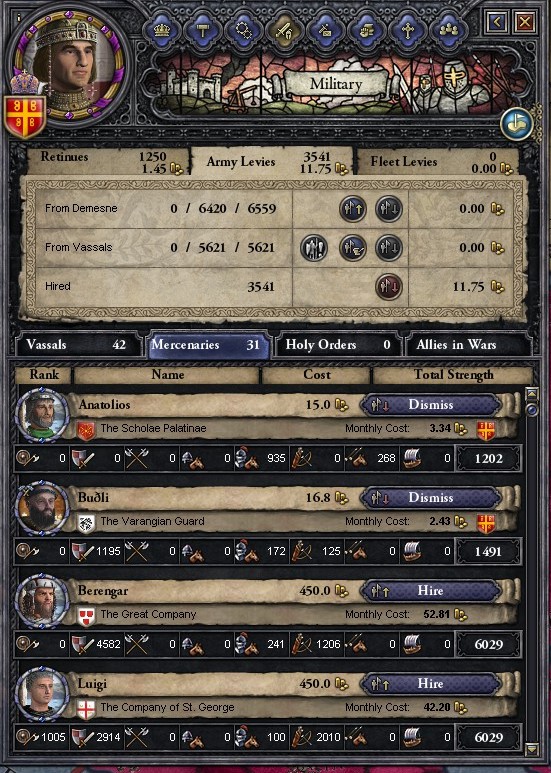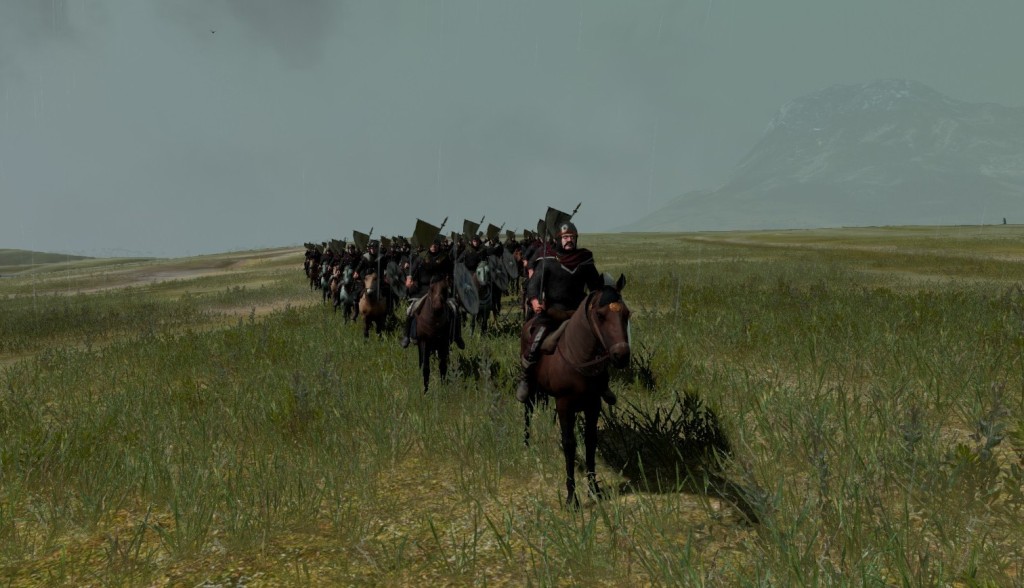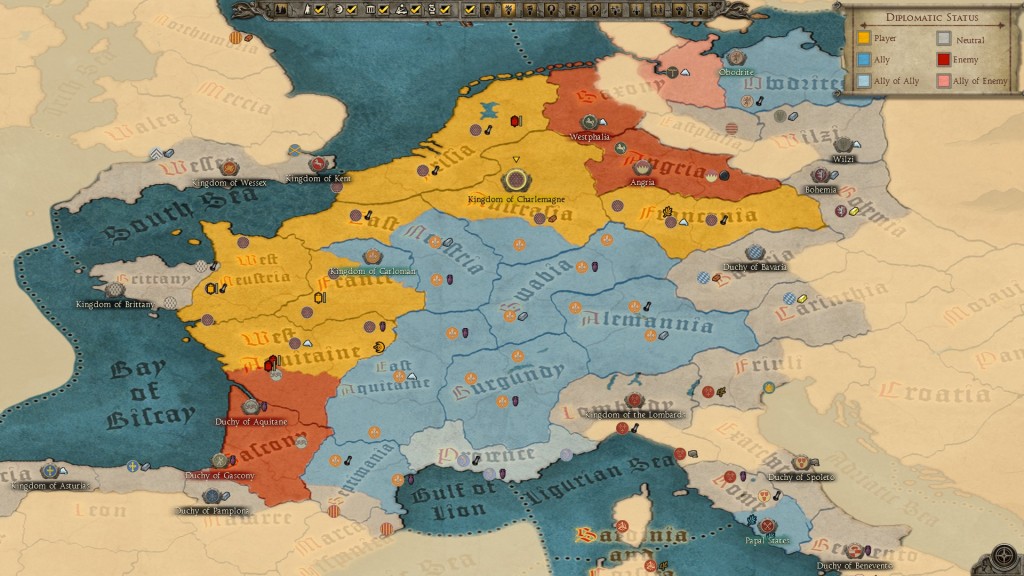Many kinds of armies have marched through history: regulars, militias, mercenaries, tribal and aristocratic warriors, and more. Yet while historical strategy games feature a colourful panoply of different troops, with distinct equipment and morale, they have typically skated over the question of how these soldiers were organised and paid. Usually, troops hang around indefinitely after being recruited; this system can be seen in games from Civilization to Europa Universalis and Total War. That said, there have been games with an interesting treatment of this subject.

The most detailed portrayal can be found in Crusader Kings 2. Realms field four different types of troops: levies, vassals’ levies, mercenaries, and personal retinues. With enough money, the last two can be turned into a de facto standing army, and thus a small but wealthy realm — say, one well-positioned on the Silk Road — can field a fighting force out of proportion to its size.
The genius of CK2 is how it incentivises players to follow history and professionalise their army. Levies take time to muster, and vassal levies have another disadvantage — the player is only entitled to them for a certain number of days. It’s better to ask for taxes to be paid in cash, and use the money to hire troops who are always on call.
Another clever example can be found in the Age of Charlemagne DLC for Total War: Attila. Charlemagne used the Total War series’ traditional systems for upkeep, recruitment cost, and recruitment time to encourage players to build a core of professional soldiers: professionals were slow to recruit but powerful and reasonably affordable to maintain, so it made sense to keep them as a standing force. By contrast, levies were cheap and easy to recruit, so there was no point keeping them around between wars; and mercenaries were easy to recruit but very expensive to maintain, so were too costly in peacetime.
As this highlights, mercenaries are quite common in Paradox and Total War games, where they are treated distinctly from regular troops. Typically they are very expensive in exchange for being available immediately. In Europa Universalis IV, mercenaries don’t drain national manpower; and in Total War games, they offer foreign troops who wouldn’t otherwise be available.
Finally, quite a few games allow the player to invest in militia, who then appear as free-spawn local defenders. These include Imperialism, the Total War series from Empire onwards, and fantasy and science fiction games such as the Dominions series and Age of Wonders: Planetfall.
Personally, I think this is fertile territory for the genre to explore further. From a gameplay perspective, this is ripe for trade-offs and interesting decisions: do you strengthen local defences, at the price of also strengthening local leaders? And from a flavour perspective, this would be another way to differentiate factions. I’d love to see more games follow the trail blazed by CK2.
This post is indebted to the late John Keegan, whose classification of armies in A History of Warfare has stuck with me all these years.



